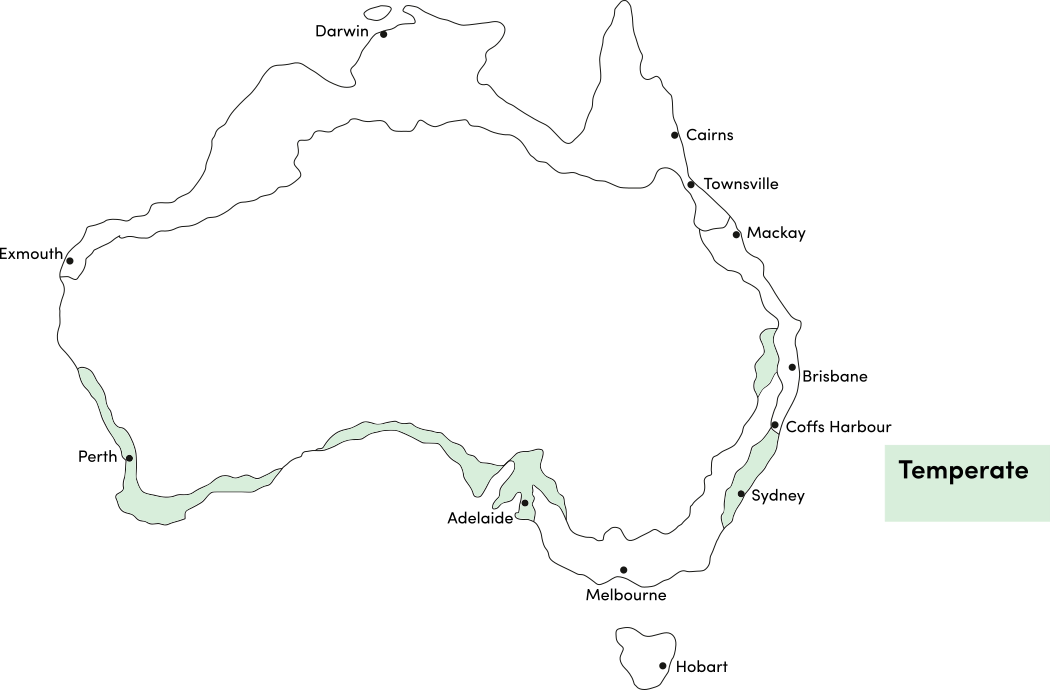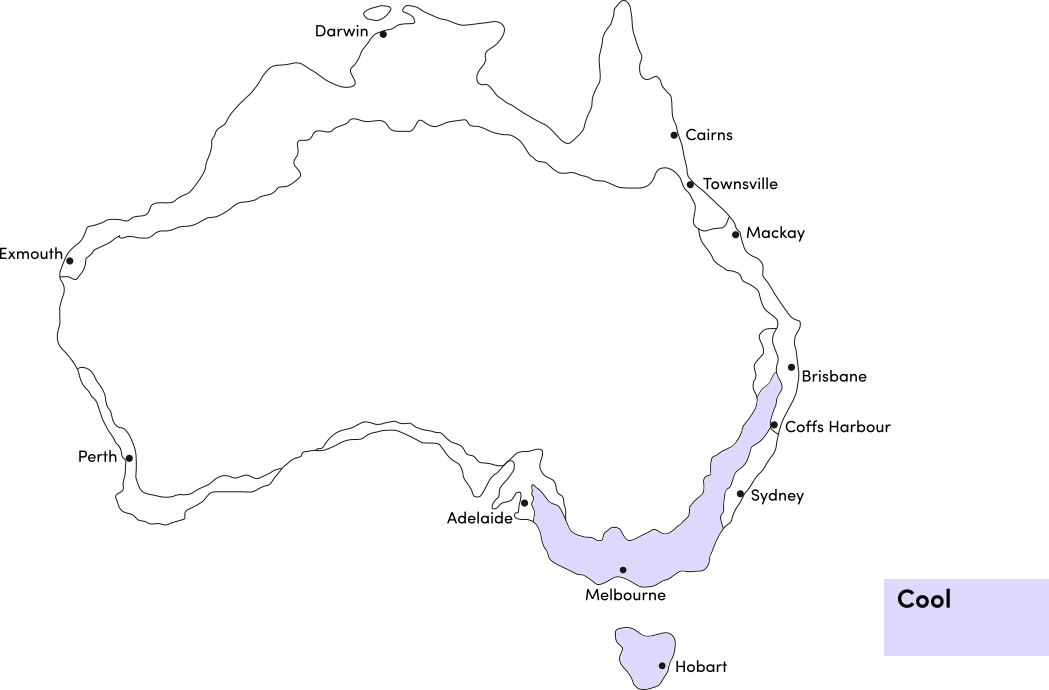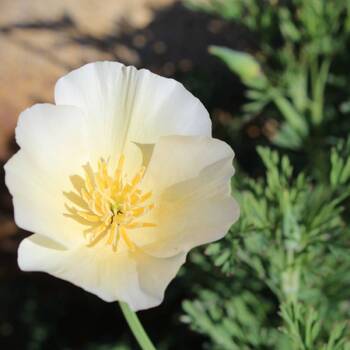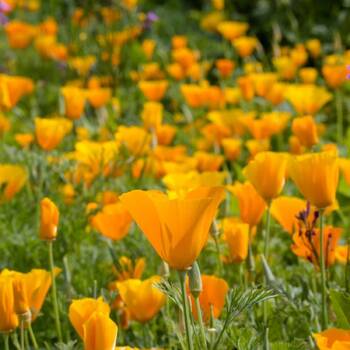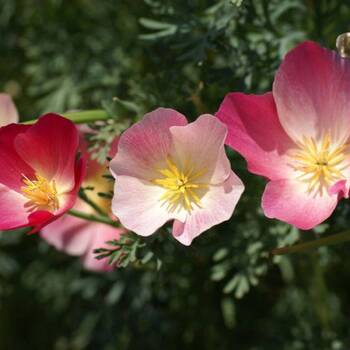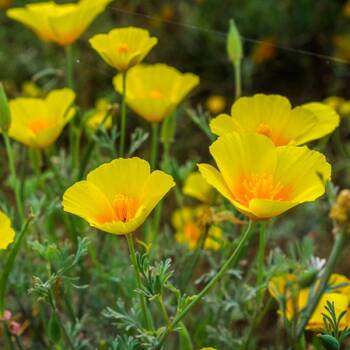
How to Grow Californian Poppy Seeds
Grow Guide #2241
Family: Papaveraceae
Binomial name: Eschscholzia californica
Life Cycle: Annual
This 'How to Grow' guide details everything a home gardener needs to know to plant, grow and care for Californian poppies (Eschscholzia californica).
When to Sow Californian poppy Seeds
Californian poppy is a warm season flower. Use the table below to identify the best time of year to sow Californian poppy seeds in your climate.
| JAN | FEB | MAR | APR | MAY | JUN | JUL | AUG | SEP | OCT | NOV | DEC | |
|---|---|---|---|---|---|---|---|---|---|---|---|---|
| Cool | ||||||||||||
| Temperate | ||||||||||||
| Sub-Tropical | ||||||||||||
| Tropical | ||||||||||||
| Arid |
Preparation
Californian poppy plants are best grown in full sun. Choose a location that will receive at least 6 hours of full sun each day.
Californian poppy plants commonly self-seed in the garden. Self-seeding plants drop seeds onto the soil at the end of the season that may germinate and grow without help the following season. Choose a position where new plants will be welcome. If you do not want Californian poppies to become established in your garden, deadhead plants before they can drop seed or grow them in containers.
Californian poppy plants need a very well drained soil. In most cases there is no need to enrich soil with manure or other fertilisers. Prepare soil by weeding it thoroughly and digging it over to loosen it. Keep the area free of weeds until planting. Learn more about preparing soil for planting here.
Californian poppy plants can be grown in containers. If possible choose a variety that’s recommended for container growing. Use a good quality potting mix and make sure your container is large enough for mature plants; a minimum of 20 litres is recommended for Californian poppies. During the growing season, keep in mind that container grown plants may need additional fertiliser to encourage healthy growth.
How to Sow Californian poppy Seeds
Californian poppy seeds do not require any treatment (eg soaking, stratification) before sowing.
Californian poppy seeds can be sown directly into the garden OR seedlings can be raised in trays or other containers and transplanted to the garden once established.
Sow Direct
- Sow seeds directly in the garden 3mm deep and 15-30cm apart.
- Keep soil moist but never wet or dry.
- Seeds should germinate in around 14-21 days at a soil temperature of 16-21°C.
- Young seedlings will need protection from pests, pets and weather until they are established.
Raise Seedlings
- Fill trays, punnets or jiffy pots with a good quality seed-raising mix, or use soil starter pellets.
- Sow seeds 3mm deep.
- Keep soil moist but never wet or dry.
- Seeds should germinate in around 14-21 days at a soil temperature of 16-21°C.
- Transplant seedlings to the garden once they have their first true leaves and are large enough to handle (usually 5-10cm tall).
- Plant out, spacing plants 15-30cm apart.
Tip: Californian poppy seeds can also be sown in the less formal ‘scatter seed’ method. Simply roughen the soil, scatter seeds evenly over the surface, then smooth the soil over lightly to cover the seeds.
How to Grow Californian poppy
Californian poppy plants are drought tolerant once established and grow best in soil that is dry and very well drained. Let the soil dry out between watering, and only water when the soil is dry about 10cm below the surface (test this by scratching away a little soil with your finger), even in summer. Water deeply in the early morning or late afternoon. Avoid watering the leaves of plants to avoid fungal diseases. Learn more about watering here.
Californian poppy plants will grow in nutrient-poor soils and do not need additional fertiliser during the growing season.
Optional: To give plants room to grow, thin seedlings when they are large enough to handle. Pull out any weak or small seedlings so plants are spaced about 15-30cm apart.
Californian poppy plants should flower in approximately 60-80 days.
Deadhead Californian poppy flowers regularly during the growing season. Using sharp secateurs or snips cut fading or dead flowers off just above a set of leaves. Removing old flowers regularly will encourage plants to produce more flowers. Learn more about deadheading flowering plants here.
Common Problems when Growing Californian poppies
Like all plants, Californian poppy is susceptible to some pests, diseases and other problems. Below is a list of the most common problems gardeners encounter when growing Californian poppy plants:
 Grey mould (Botrytis sp.) is a fungal disease that causes flowers to become mouldy and fruit to rot. Spores are transported by wind and can survive in soil or on green waste. The fungus spreads most in cool, damp weather. Prune off affected flowers and fruit, water plants at soil level (not on leaves) and if necessary spray with an appropriate fungicide or homemade spray.
Grey mould (Botrytis sp.) is a fungal disease that causes flowers to become mouldy and fruit to rot. Spores are transported by wind and can survive in soil or on green waste. The fungus spreads most in cool, damp weather. Prune off affected flowers and fruit, water plants at soil level (not on leaves) and if necessary spray with an appropriate fungicide or homemade spray.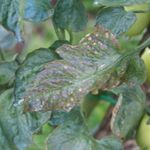 Downy mildew is a fungal disease that causes yellow to grey-brown patches on leaves, especially the undersides. Water plants at soil level (not on the leaves), remove and destroy affected leaves and do not overcrowd plants to ensure adequate air flow. If problems persist, spray with a homemade milk spray or fungicide.
Downy mildew is a fungal disease that causes yellow to grey-brown patches on leaves, especially the undersides. Water plants at soil level (not on the leaves), remove and destroy affected leaves and do not overcrowd plants to ensure adequate air flow. If problems persist, spray with a homemade milk spray or fungicide..jpg) Powdery mildew is caused by fungal spores reproducing on the leaves of plants. First showing as white spots on leaves, affected areas can spread quickly to cover the entire leaf surface. While rarely fatal, powdery mildew can reduce yields. Water plants at soil level (not on leaves) to prevent spreading spores, allow good air flow between plants, remove affected leaves and if necessary spray with an appropriate fungicide or homemade spray. Read more here about powdery mildew here.
Powdery mildew is caused by fungal spores reproducing on the leaves of plants. First showing as white spots on leaves, affected areas can spread quickly to cover the entire leaf surface. While rarely fatal, powdery mildew can reduce yields. Water plants at soil level (not on leaves) to prevent spreading spores, allow good air flow between plants, remove affected leaves and if necessary spray with an appropriate fungicide or homemade spray. Read more here about powdery mildew here.
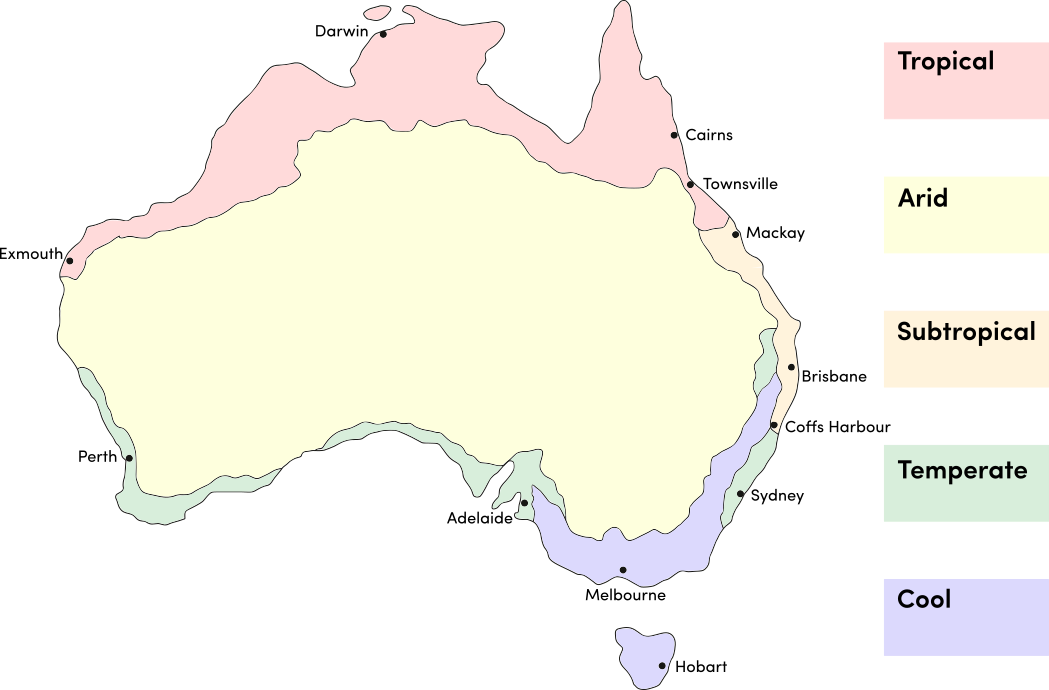

.png)

